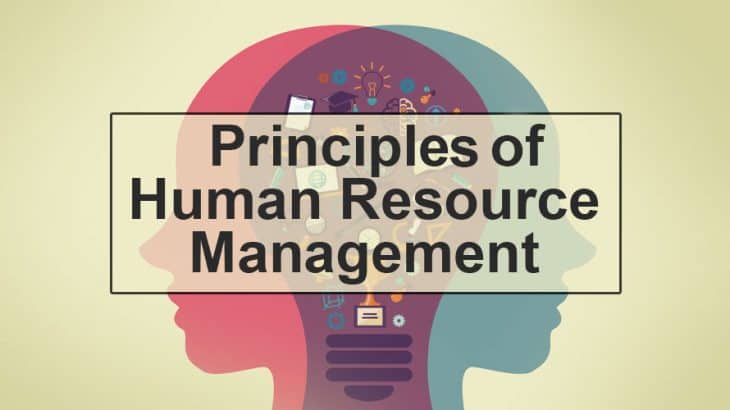Human resource management (HRM) is an essential function for every organization. The role of HRM is to ensure that the organization’s workforce is aligned with the business objectives and strategies. The principles of human resource management are the fundamental concepts and guidelines that help to manage employees in the organization. This article will discuss the principles of human resource management and their importance in today’s business world.
Introduction
Human resource management is a critical aspect of any organization. The success of the business depends on the quality of its employees. HRM plays a vital role in recruiting, selecting, training, and managing employees to ensure they are productive and motivated. This article will examine the principles of human resource management and why they are crucial to the success of any organization.
Definition of Human Resource Management
Human resource management is the process of managing an organization’s workforce to achieve the business objectives. The role of HRM is to attract, select, train, develop, and manage employees to ensure they are productive and motivated. HRM is responsible for creating policies and procedures that govern the employment relationship, including recruitment, selection, performance management, compensation, benefits, and employee relations.
Principles of Human Resource Management
The principles of human resource management are the fundamental concepts and guidelines that help to manage employees in the organization. These principles include:
Recruitment and Selection
Recruiting and selecting the right employees is crucial to the success of any organization. The principles of recruitment and selection include identifying the job requirements, attracting qualified candidates, screening and selecting candidates, and conducting background checks. HRM must ensure that the recruitment and selection process is fair, transparent, and free from bias.
Training and Development
Training and development are essential to the success of any organization. The principles of training and development include identifying the training needs, developing training programs, delivering training, and evaluating training effectiveness. HRM must ensure that the training and development programs are aligned with the business objectives and help to develop employees’ skills and knowledge.
Performance Management
Performance management is the process of setting goals, monitoring progress, and providing feedback to employees. The principles of performance management include setting clear performance expectations, providing regular feedback, and conducting performance reviews. HRM must ensure that the performance management process is objective, fair, and consistent.
Compensation and Benefits
Compensation and benefits are critical to attracting and retaining employees. The principles of compensation and benefits include determining the market value of jobs, developing a compensation strategy, and designing a benefits package. HRM must ensure that the compensation and benefits package is competitive and aligned with the business objectives.
Employee Relations
Employee relations are crucial to creating a positive work environment. The principles of employee relations include promoting communication, resolving conflicts, and fostering a positive workplace culture. HRM must ensure that the employment relationship is based on mutual respect, trust, and fairness.
Health and Safety
Health and safety are essential to protecting employees and complying with legal requirements. The principles of health and safety include identifying hazards, assessing risks, implementing control measures, and providing training. HRM must ensure that the workplace is safe and healthy for employees.
Importance of Principles of Human Resource Management
The principles of human resource management are critical to the success of any organization. HRM helps to align the organization’s workforce with the business objectives and strategies. The principles of HRM ensure that the organization has the right people with the necessary skills, knowledge, and attitudes to achieve the business goals. The importance of the principles of human resource management are:
Increased Productivity
The principles of human resource management help to increase productivity by ensuring that employees have the necessary training, resources, and motivation to perform their jobs. When employees are well-trained and motivated, they are more likely to be productive and contribute to the success of the organization.
Better Employee Engagement
The principles of human resource management promote employee engagement by creating a positive work environment. When employees feel valued, respected, and appreciated, they are more likely to be engaged and committed to the organization. This, in turn, leads to better job performance and higher productivity.
Legal Compliance
The principles of human resource management help organizations to comply with legal requirements. HRM ensures that the organization follows labor laws and regulations, such as minimum wage laws, anti-discrimination laws, and health and safety regulations.
Improved Organizational Performance
The principles of human resource management help to improve organizational performance by aligning the workforce with the business objectives and strategies. HRM ensures that employees have the necessary skills and knowledge to perform their jobs, which contributes to the success of the organization.
Conclusion
In conclusion, the principles of human resource management are essential for the success of any organization. HRM plays a vital role in recruiting, selecting, training, and managing employees to ensure they are productive and motivated. The principles of human resource management help to align the workforce with the business objectives and strategies, increase productivity, promote employee engagement, ensure legal compliance, and improve organizational performance.







